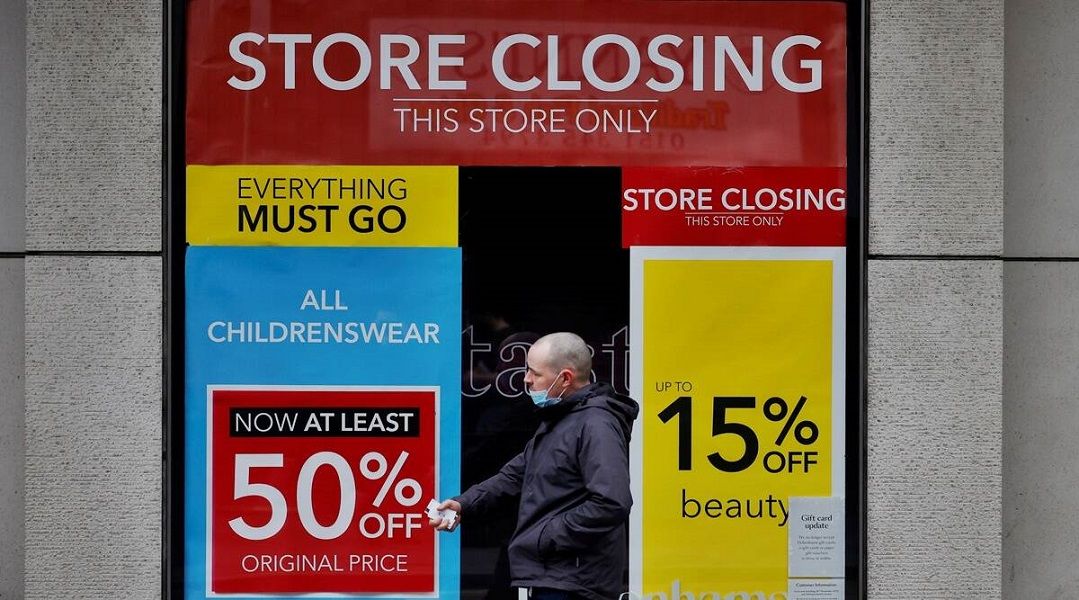
Retail Apocalypse (Serial 1): Indonesian Retail Companies Crumble Before and After the Pandemic
JAKARTA – The continuity of the retail business in Indonesia is back to be discussed. This issue is widely heard because recently one of the retail issuers, PT Hero Supermarket Tbk (HERO) decided to close a number of its outlets by the end of July this year. Based on the company’s official statement at the […]
Industri
JAKARTA – The continuity of the retail business in Indonesia is back to be discussed. This issue is widely heard because recently one of the retail issuers, PT Hero Supermarket Tbk (HERO) decided to close a number of its outlets by the end of July this year.
Based on the company’s official statement at the Indonesia Stock Exchange (IDX), management revealed its plan to convert five Giant outlets into IKEA. Meanwhile, the rest of the other Giant outlets will be closed.
Director of HERO, Hadrianus Wahyu Trikusumo, said this step was taken as an investment focus to develop IKEA, Guardian, and Hero Supermarkets which have higher growth potential compared to Giant.
- 11 Bank Biayai Proyek Tol Serang-Panimbang Rp6 Triliun
- PTPP Hingga Mei 2021 Raih Kontrak Baru Rp6,7 Triliun
- Rilis Rapid Fire, MNC Studios Milik Hary Tanoe Gandeng Pengembang Game Korea
In Indonesia, on the other hand, retail closures have been going on for the past five years. Several retailers were listed as going out of business before the pandemic because they couldn’t survive for a variety of reasons.
The influencing factors also vary, ranging from the production burden, the decline in purchasing power, to the changing lifestyle of people who are starting to switch to online shopping.
Especially with the pandemic, it is undeniable that the retail business is becoming increasingly depressed. The Indonesian Retail Entrepreneurs Association (Aprindo) noted that there were more than 400 minimarkets that went bankrupt and went out of business during the pandemic.
An average of 5-6 supermarket outlets were forced to close from March to December 2020. While for the January-March 2021 period, 1-2 stores also experienced the same thing.
TrenAsia.com summarizes list of retailers who were forced to close their outlets in Indonesia.
1. Giant

Ritel Giant Express milik PT Hero Supermarket Tbk yang harus ditutup / Dok. Giant Indonesia
The hypermarket-format retail business has begun to weaken since 2015. At that time, the company decided to close 75 Giant outlets in a number of areas due to low sales.
Furthermore, management acknowledges that the decision was influenced by the weakening economy and declining purchasing power.
Three years later, a number of Giant outlets, especially Giant Express, suffered the same fate. From the initial number of 166 outlets, it was reduced to 142 outlets. Giant, which is part of the Hero Group, continued to close in a number of locations in July 2019.
- 11 Bank Biayai Proyek Tol Serang-Panimbang Rp6 Triliun
- PTPP Hingga Mei 2021 Raih Kontrak Baru Rp6,7 Triliun
- Rilis Rapid Fire, MNC Studios Milik Hary Tanoe Gandeng Pengembang Game Korea
- Anies Baswedan Tunggu Titah Jokowi untuk Tarik Rem Darurat hingga Lockdown
- IPO Akhir Juni 2021, Era Graharealty Dapat Kode Saham IPAC
In Jabodetabek, this closure happened to Giant Express Cinere Mall, Giant Express Mampang, Giant Express Pondok Timur, Giant Extra Jatimakmur, Giant Mitra 10 Cibubur, and Giant Extra Wisma Asri.
Earlier this year three Giant outlets continued to be closed due to the pandemic situation. Besides Giant Extra in Margo City Depok, the other two are Giant Mayasari Plaza and Giant Kalibata.
Prior to joining the HERO business unit, Giant was known to be a Malaysian company founded in 1944 by the Teng Family. Giant provides a variety of daily necessities, from food to clothing needs and is located in Shah Alam, Selanggor Darul Ehsan.
2. Disc Tarra
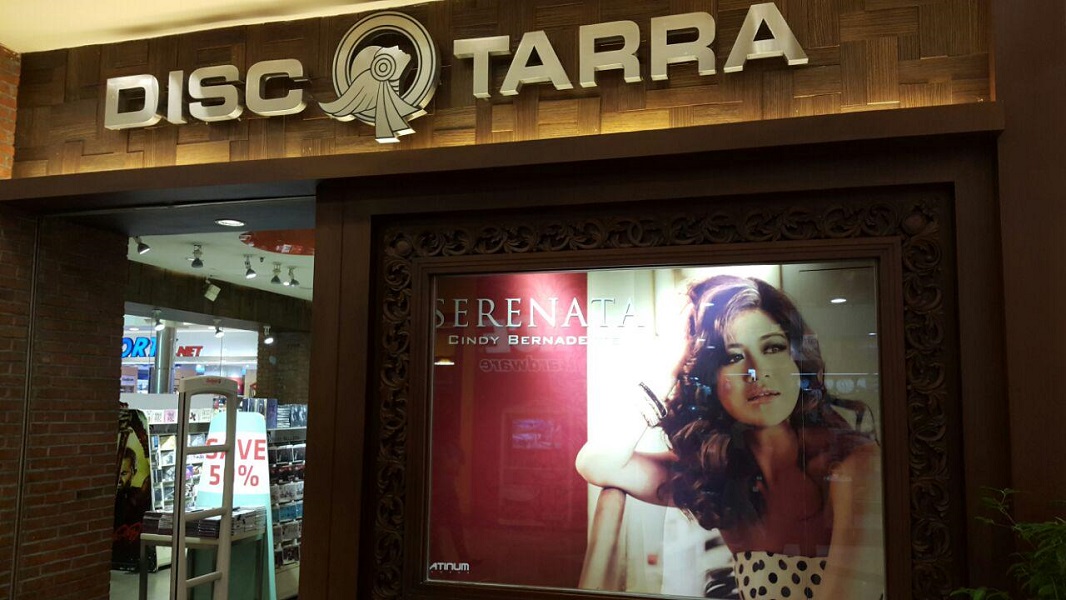
Toko CD Disc Tarra / Twitter @disctarra
This retail company that sells compact discs (CDs) is quite popular in the 2000s era. However, at the end of 2015, Disc Tarra officially decided to close its 100 stores.
This closure was motivated by the lack of visitors. This is due to the fact that music lovers are slowly switching to listening to songs via digital and starting to abandon physical formed music.
In addition, the emergence of the internet that allows someone to download music illegally also contributed to the decline in CDs sales. The closing momentum of the Tarra Disc was also marked by selling goods on a large scale at sale prices.
3. Sevel (7-Eleven)
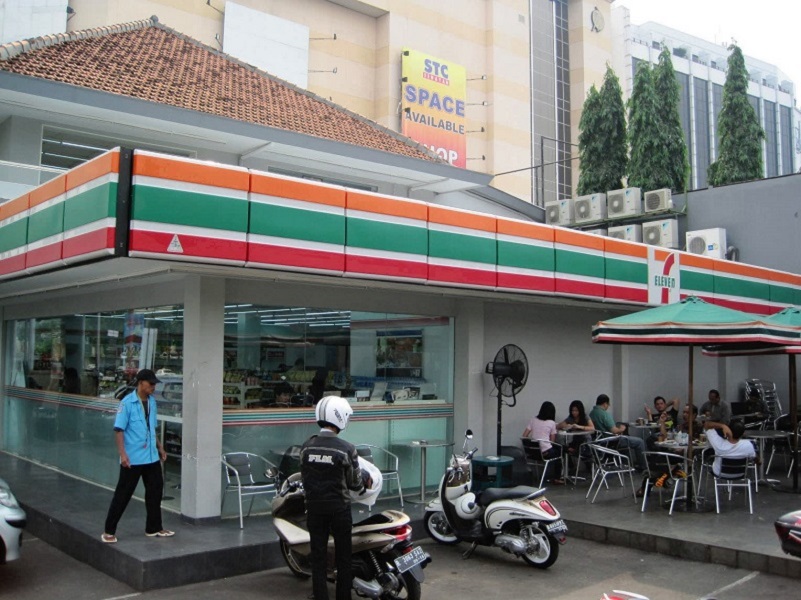
Ritel convenience store Seven Eleven (7-eleven) harus menutup gerai / Nikkei
The retail business fronted by PT Modern Sevel Indonesia (MSI) closed simultaneously on June 30, 2017. 7-Eleven Inc as the business entity managing the global Sevel network, decided to terminate the agreement with PT Modern Internasional Tbk (MDRN) or Sevel’s parent company in Indonesia.
Operating for eight years, Sevel was not strong enough to compete with a number of retailers with similar concepts, such as Family Mart, Lawson, Indomaret Poin, and so on.
In fact, the Sevel outlet, which is built similar to a cafe, is a popular hangout spot for young people. Despite the fact that there are a large number of visitors, the management recognizes that the revenue of this outlet is not commensurate with the operational costs.
- 11 Bank Biayai Proyek Tol Serang-Panimbang Rp6 Triliun
- PTPP Hingga Mei 2021 Raih Kontrak Baru Rp6,7 Triliun
- Rilis Rapid Fire, MNC Studios Milik Hary Tanoe Gandeng Pengembang Game Korea
- Anies Baswedan Tunggu Titah Jokowi untuk Tarik Rem Darurat hingga Lockdown
- IPO Akhir Juni 2021, Era Graharealty Dapat Kode Saham IPAC
The reason is that visitors prefer to hang out for a long time to enjoy the facilities, such as electrical outlets, Wi-Fi networks, and others.
Another factor that caused Sevel to close was Sevel’s loss which reached Rp447.9 billion in the first quarter of 2017. In addition, the cancellation of the Rp1 trillion agreement between MDRN and PT Charoen Pokhphand Restu Indonesia in early June 2017.
4. Matahari Department Store
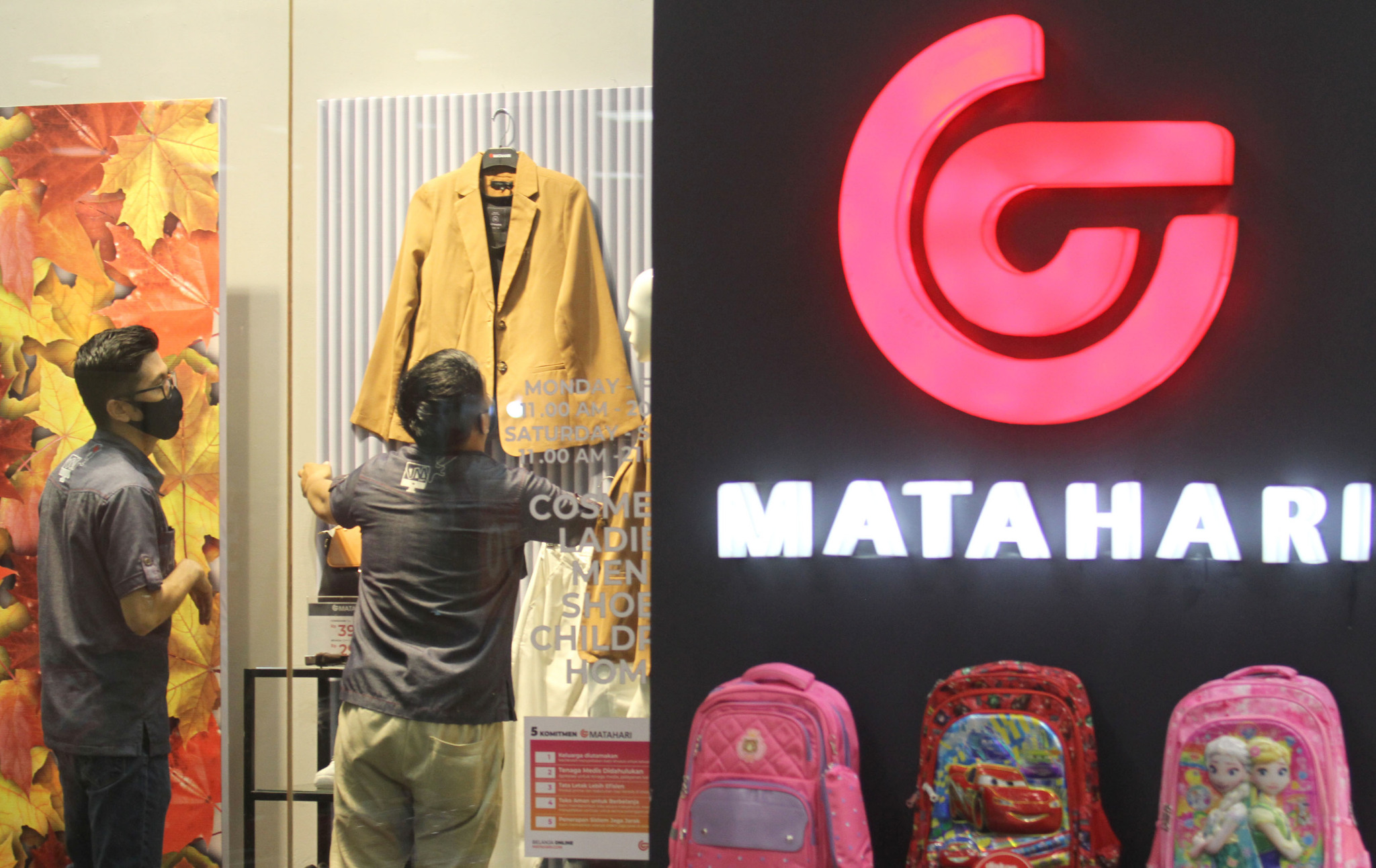
Suasana pengunjung berbenja di Matahari Departement Store Mal WTC, Serpong, Tangerang Selatan, Banten, Selasa, 20 Oktober 2020. Foto: Panji Asmoro/TrenAsia
We still often find PT Matahari Department Store Tbk (LPPF) clothing retailer in a number of places. However, the retail business unit of the Lippo Group, has experienced a decline in business which has an impact on store closures.
In September 2017, Matahari stores at Pasaraya Blok M and Manggarai were the first two locations to close. Then this happened again at Matahari Mall Taman Anggrek outlets in West Jakarta, Lombok City Center, and West Nusa Tenggara which closed at the end of December 2017.
This closure, similar to HERO’s Giant, occurred again in the year of the pandemic 2020. During this time, 25 Matahari outlets, including Matahari at Lippo Plaza Mal Yogya, Lippo Mal Kuta, Kebun Raya Bogor, Lippo Plaza Mal Gresik, Mayofield TC, and GTC TC Makassar, were officially closed.
- 11 Bank Biayai Proyek Tol Serang-Panimbang Rp6 Triliun
- PTPP Hingga Mei 2021 Raih Kontrak Baru Rp6,7 Triliun
- Rilis Rapid Fire, MNC Studios Milik Hary Tanoe Gandeng Pengembang Game Korea
- Anies Baswedan Tunggu Titah Jokowi untuk Tarik Rem Darurat hingga Lockdown
- IPO Akhir Juni 2021, Era Graharealty Dapat Kode Saham IPAC
Until the end of last year, Matahari is understood to have 147 outlets left. Meanwhile, in the first quarter of 2021, the retail store, which opened for the first time in 1958, recorded a loss of Rp95 billion.
Along with changes in online shopping trends, management has also chosen to change marketing strategies through digital channels, namely through sales at the e-commerce MatahariMall.com.
5. Lotus Department Store
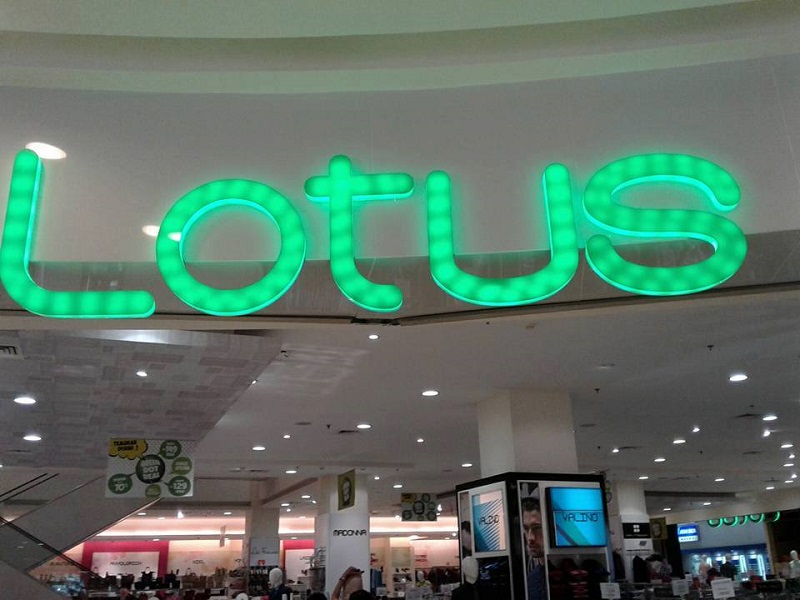
Lotus Departement Store / Dok. Lotus Dept Store
This outlet is operated by PT Java Retailindo (JR) under the auspices of PT Mitra Adiperkasa Tbk (MAPI). The total closure was carried out on October 30, 2017. All 100 Lotus outlets in Jakarta, Bekasi and Cibubur were forced to close.
Low sales are referred to as the root cause of the company’s bankruptcy. Finally, at the closing of the store, Lotus sold out all products with discounts reaching 80% of the normal price.
6. Debenhams
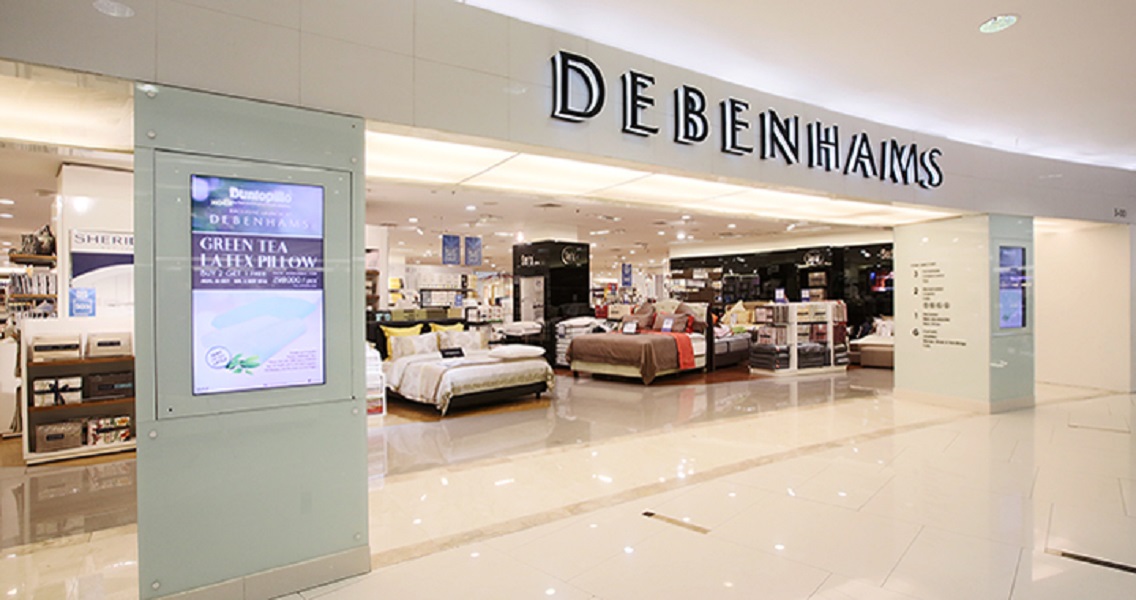
Gerai ritel Dabenhams di Senayan City / Loveindonesia.com
This self-service retailer is still under the same umbrella as Lotus. Debenhams was forced to follow Lotus’ footsteps by closing operations completely at the end of 2017.
Debenhams is an outlet license from a British retail company. In Indonesia, there were three outlets opened, namely Debenhams Kemang, Karawaci, and Senayan City. After closing, MAP transferred sales of Debenhams to an online site called MAPeMall.
7. New Look
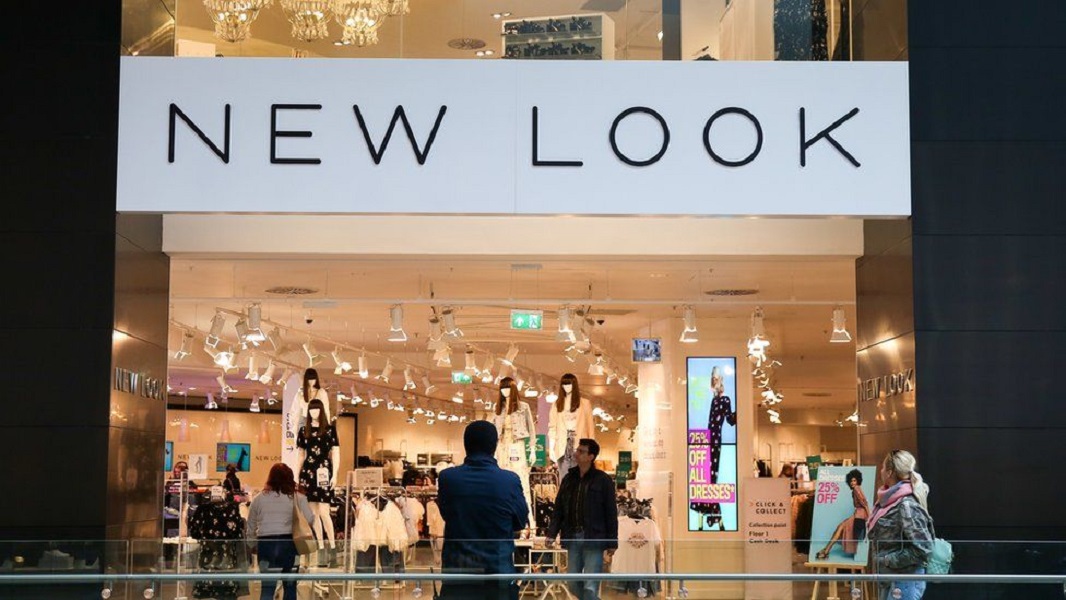
Gerai ritel pakaian New Look / Bbc.uk
This British fashion retailer, which is owned by MAP, also permanently went out of business in Indonesia on February 19, 2018. During its operation, it had 12 locations in Jakarta and Bandung.
Due to unsanitary financial conditions, nearly 100 New Look stores in its home country were also closed.
8. GAP
GAP is a retail company from the United States with five outlets in Indonesia. Under the auspices of PT Gilang Agung Persada, many GAP store rental contracts were not extended, and ended in February 2018. As a result, five outlets spread across Jakarta, Bali and Surabaya were forced to close.
Management admitted that they wanted to concentrate their efforts on expanding the business of brand watch outlets, Casio and other accessories such as VNC, Justice, and Superdry.
9. Ramayana
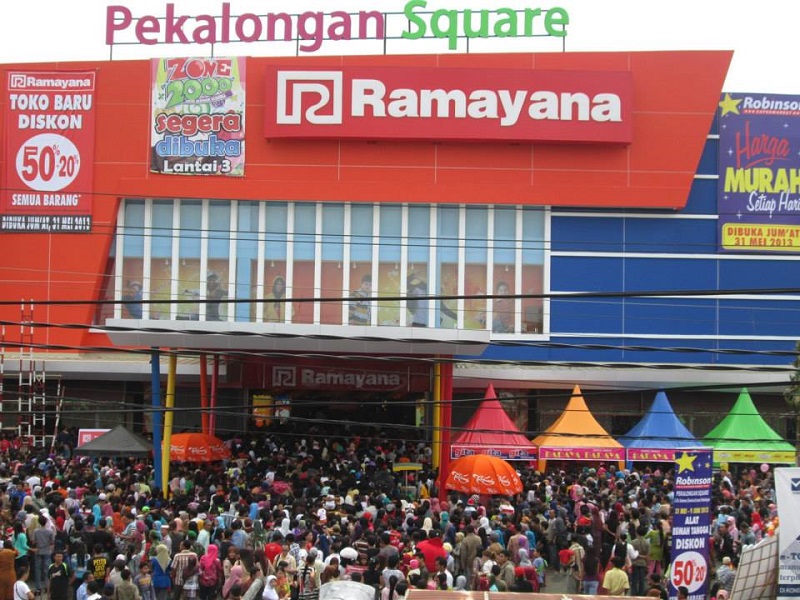
Ritel Ramayana Departement Store milik PT Ramayana Lestari Tbk (RALS) / Facebook @ramayanadepartementstroe
Retail issuer PT Ramayana Lestari Sentosa Tbk (RALS) finally stumbled upon the trend of bankruptcy that hit retail in Indonesia.
Due to social restrictions during the pandemic, management decided to close 13 outlets in various locations in September 2020. Previously, 94 Ramayana outlets were also temporarily closed throughout March 2020 during the implementation of Large-Scale Social Restrictions (PSBB). This is done simultaneously to evaluate the company’s sales and business.
10. Golden Truly
This shopping center officially closed on December 1, 2020. Management announced on the official Instagram account @goldentruly that the mall, which is located at Jalan Gunung Sahari Number 59, Central Jakarta, will be managed by a new developer. Then, Golden Truly’s operations will continue online through Tokopedia and Shopee e-commerce.
11. Lotteria
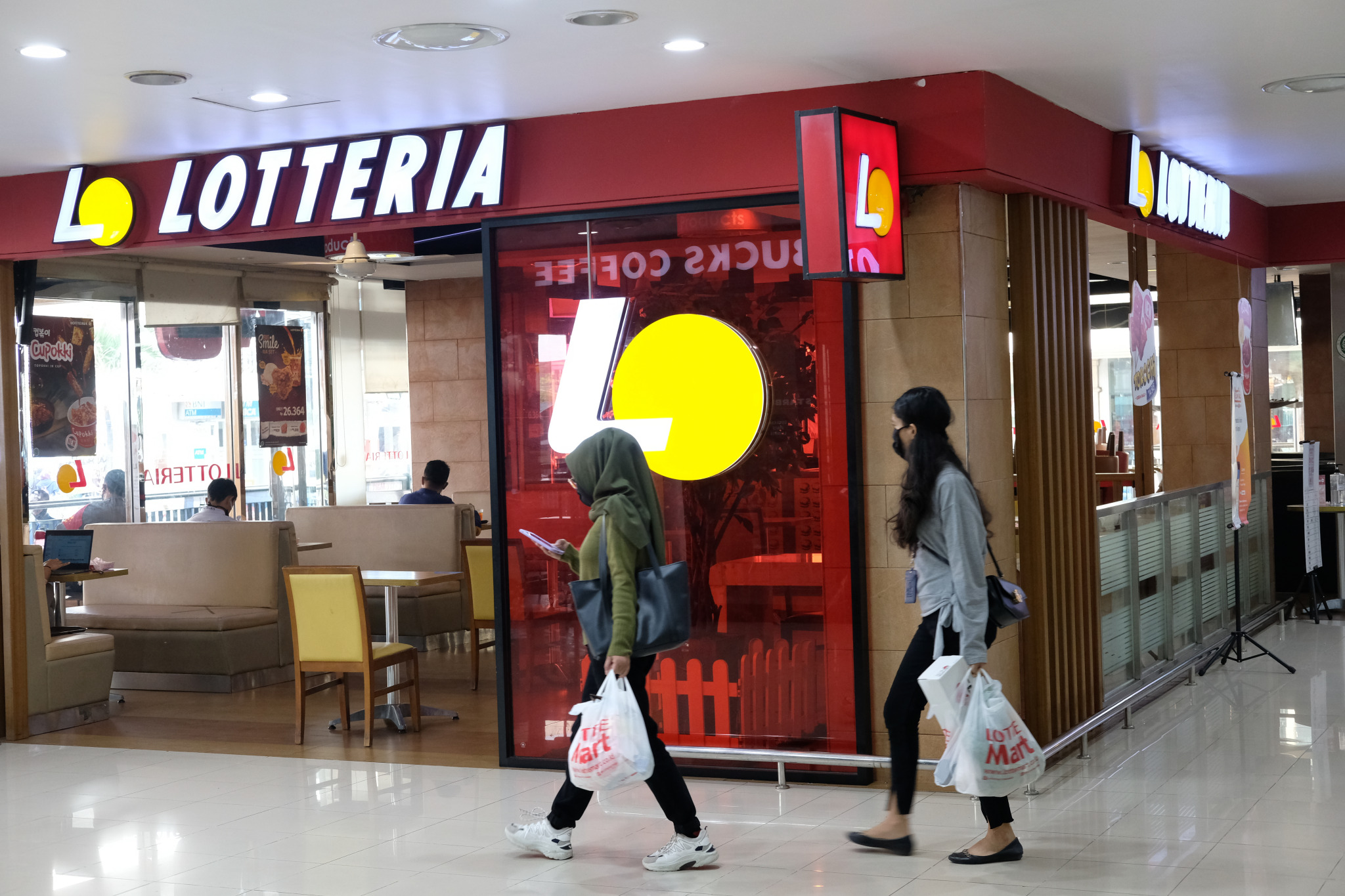
Pengunjung melintas didepan gerai restoran cepat saji khas Korea Selatan (Korsel) Lotteria di Fatmawati, Jakarta, Sabtu 20 Juni 2020. Lotteria akan menutup semua gerainya di Indonesia pada 29 Juni 2020 mendatang. Melalui pengumuman resmi manajemen Lotteria, restoran Korsel itu akan menutup 32 gerainya yang berlokasi di Jabodetabek, Cikarang, Karawang dan Bandung. Foto: Ismail Pohan/TrenAsia
Not only clothing retail, fast food outlet Lotteria also decided to permanently close all of its outlets in Indonesia. As of June 29, 2020, a total of 32 outlets located in Greater Jakarta, Cikarang, Karawang, and Bandung have stopped operating.
For information, the retailer which has typical selling products of fried chicken and burgers, is a subsidiary of Lotte Group from South Korea.
In Seoul, Lotteria was first established in 1979. The company also expanded a few years later by opening branches across countries, including in Indonesia in 2011.
12. Gramedia
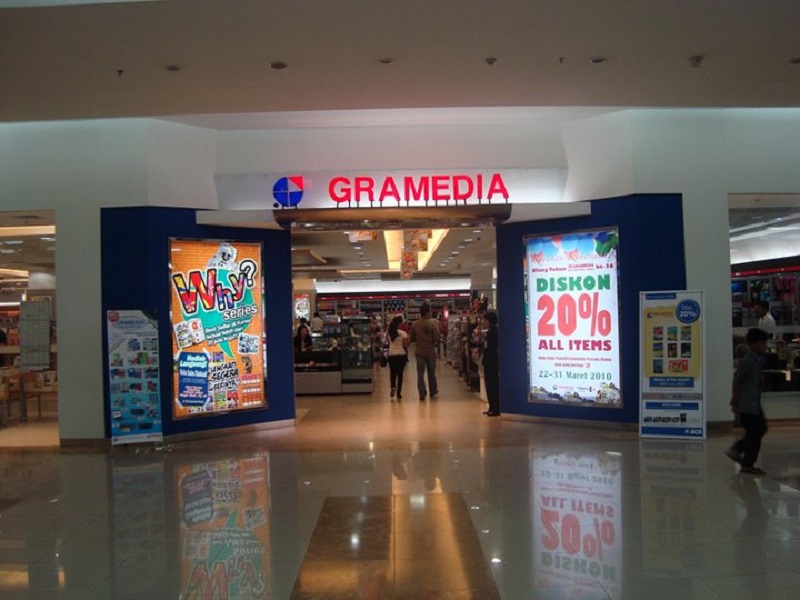
Ritel toko buku Gramedia / Facebook @gramediastore
Gramedia bookstore was established as a retail business unit under the management of PT Gramedia Asri Media. This bookstore is the only one with the largest network in Indonesia.
In October 2020, the management closed Gramedia’s operations at Taman Anggrek Mall by not extending the lease period. The company admitted that this decision was taken because there are still several outlets operating near the Taman Anggrek Mall area, such as Gramedia outlets at Ciputra Mall and Central Park Mall (CP). In addition, it is recognized that book sales and the number of visitors continue to decline amid the pandemic.
13. Kinokuniya
Recently, the Kinokuniya bookstore was also officially closed permanently on April 1st. The company claimed in the official Instagram account @Kinokuniya_id to want to focus on selling books online on the kunokuniya.co.id page or platforms on Blibli, Shopee, and Tokopedia.
14. Centro
Most recently, the management of Centro Department Store officially closed its outlet at Plaza Ambarrukmo Yogyakarta in March 2021. This retailer stopped operating after selling for 15 years since the mall was established.
The same thing is rumored to be happening to Centro on Bintaro Xchange. The management has displayed a statement that reads, “Sorry for the inconvenience, Centro Bintaro Xchange is carrying out stock of name.”
The Centro retail network is owned by Parkson Retail Asia Limited Ltd which is managed by PT Tozy Sentosa.
This article is a series of special reports that will be continued in the next issue entitled “Retail Apocalypse.”
Writer: Aprilia Ciptaning
Editor: Sukirno

